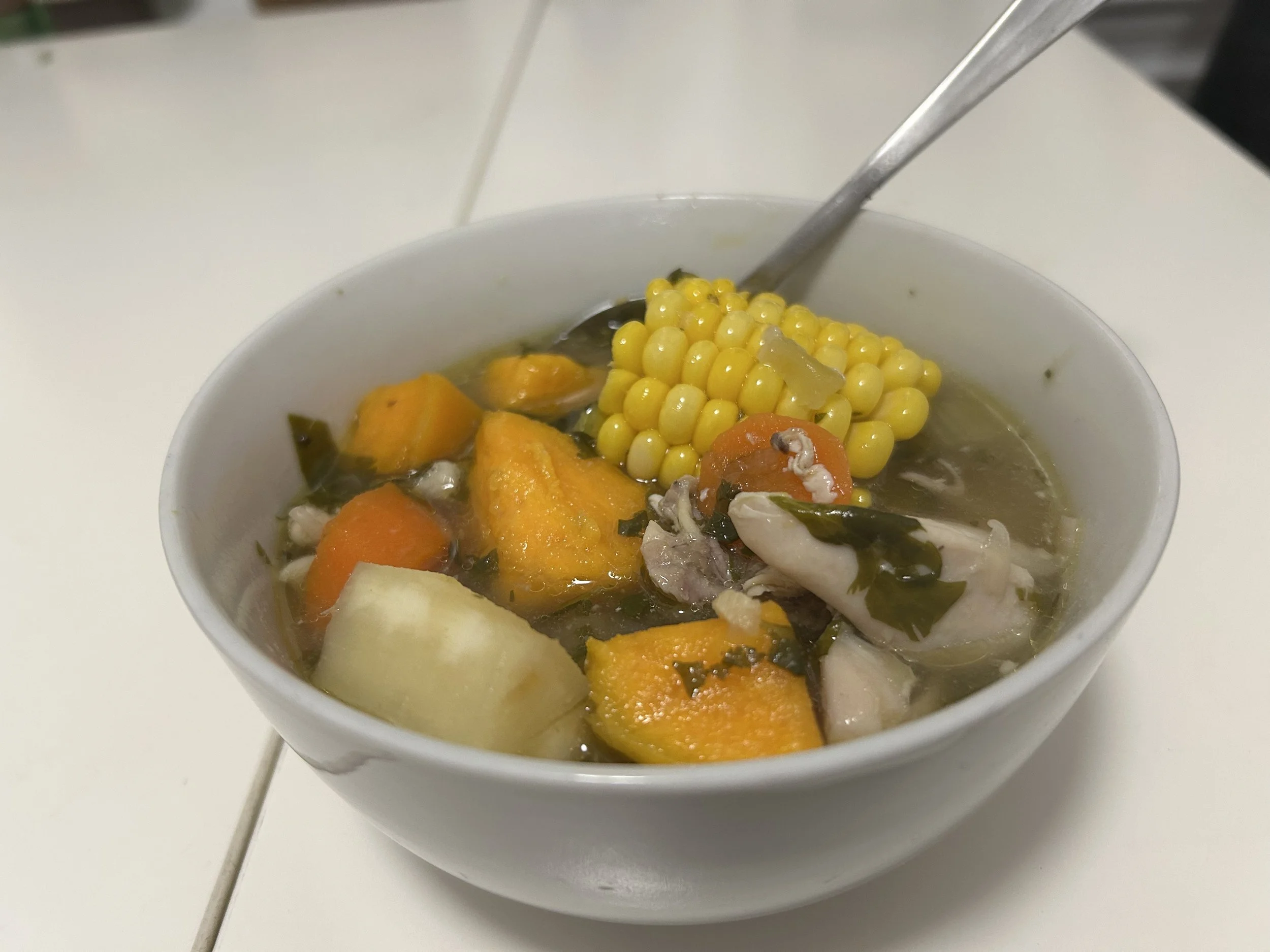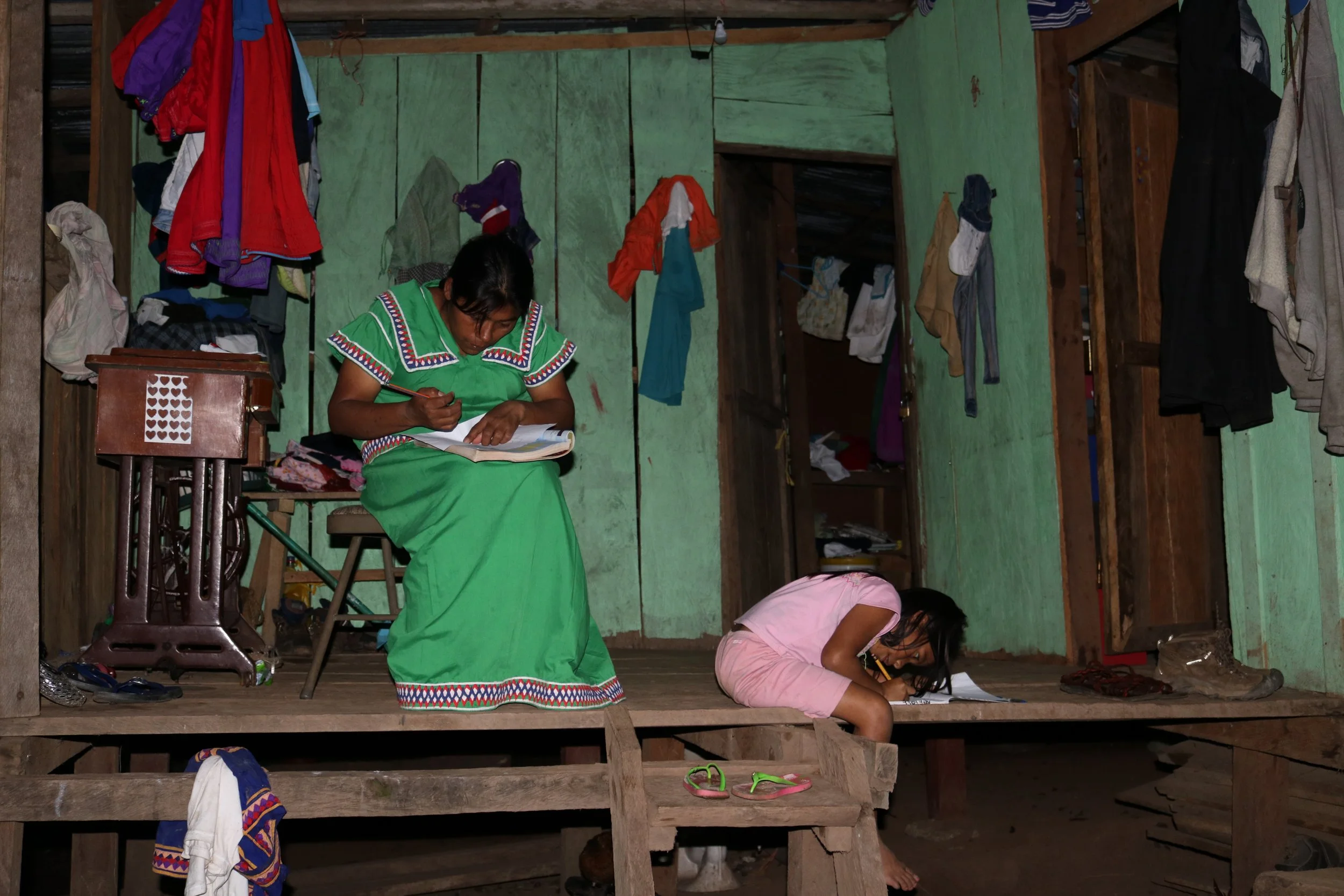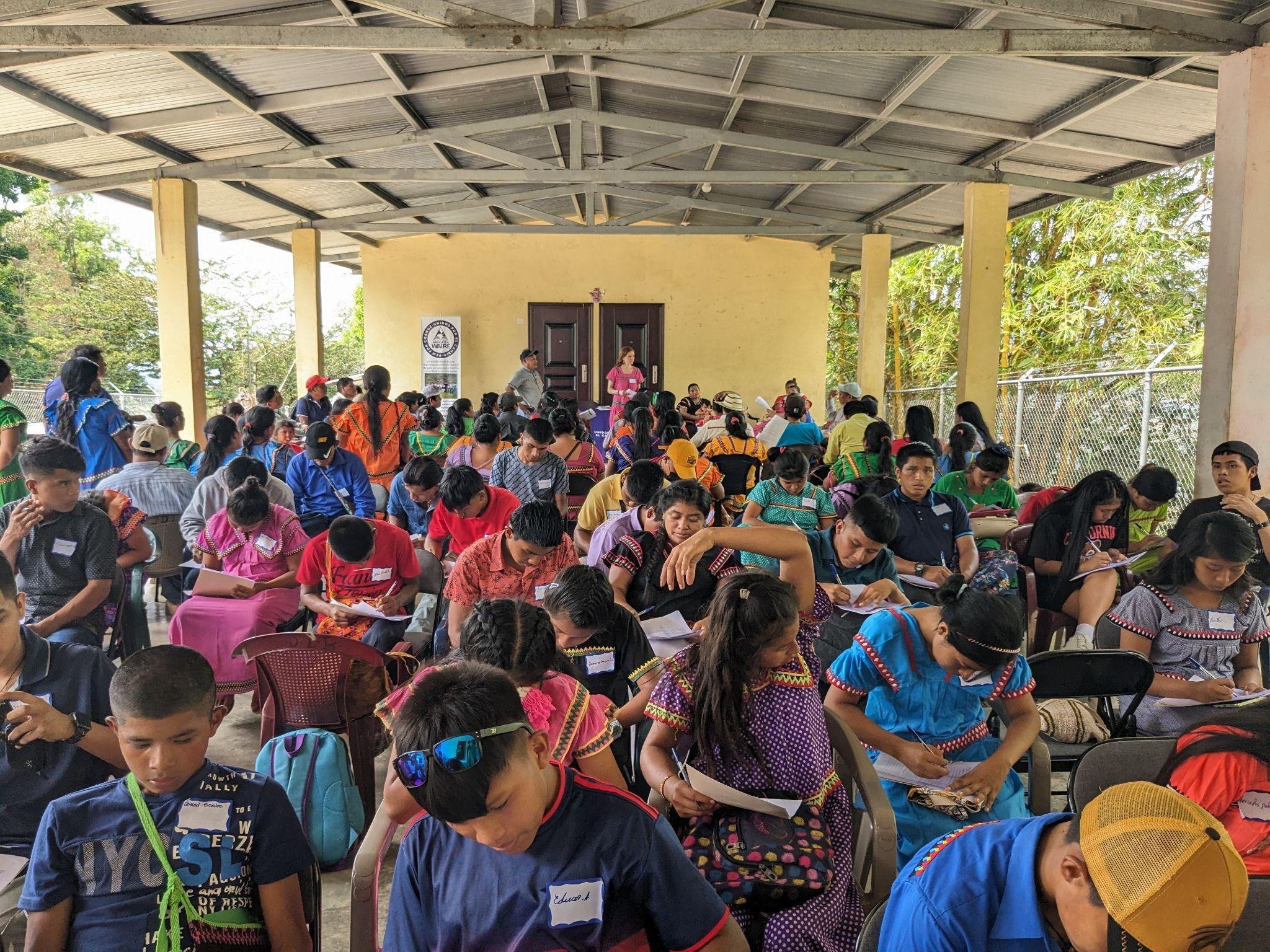Hello, readers! My name is Madison and I’m a new fellow with Few For Change. I was brought up in South Florida, I now live in Maine, and there is a world of difference in my everyday life here. One aspect of my life that has always been the same is the easy access I have to health care. I have affordable healthcare through the Affordable Care Act, there are many affordable walk-in clinics in my area, and many prescriptions are even free to me.
A Comarca sunset, February 2015
Recently learning of the extreme difficulties in accessing healthcare throughout the Comarca Ngäbe-Buglé region has made me want to share this information. Not only do I love my time traveling and volunteering in Central America with Masons on a Mission, but every family and individual I have had the privilege of meeting during my travels has humanized these very real issues.
A recent report released by the Comptroller General of Panama shows that during 2016, the three leading causes of deaths for the Ngäbe-Buglé people were diarrhea, HIV, and various acts of violence. The Panamanian newspaper La Prensa reports that cultural factors have a big impact on the fact that HIV is spreading; however, the lack of medical access, including the large distances between communities and health centers and rare access to condoms, surely contribute to the worsening of this issue.
Local folks, February 2016
Also found in the report was that gastrointestinal problems are occurring in shockingly large numbers. This is linked to hygiene challenges and individuals who aren’t able to meet their basic sanitation needs due to difficult access to clean water, or a lack of education on how to make contaminated water clean. There are some 200,000 people living in this “fertile ground for viruses,” and there is absolutely not enough outreach.
Beautiful mountain views in the Comarca, February 2016
There is no simple way to fix large-scale problems within an enormous group of people. Promoting education and sharing it with others could not be a greater mission. Bright and inspired students in the Comarca are increasing their chances of staying healthy by continuing their education, sharing this knowledge with their communities, and working to make positive change. I would encourage anyone with internet access and an interest in humanitarian aid to spend time learning about these indigenous people and support educational opportunities in the Comarca through Few For Change scholarships.
February 2015

















